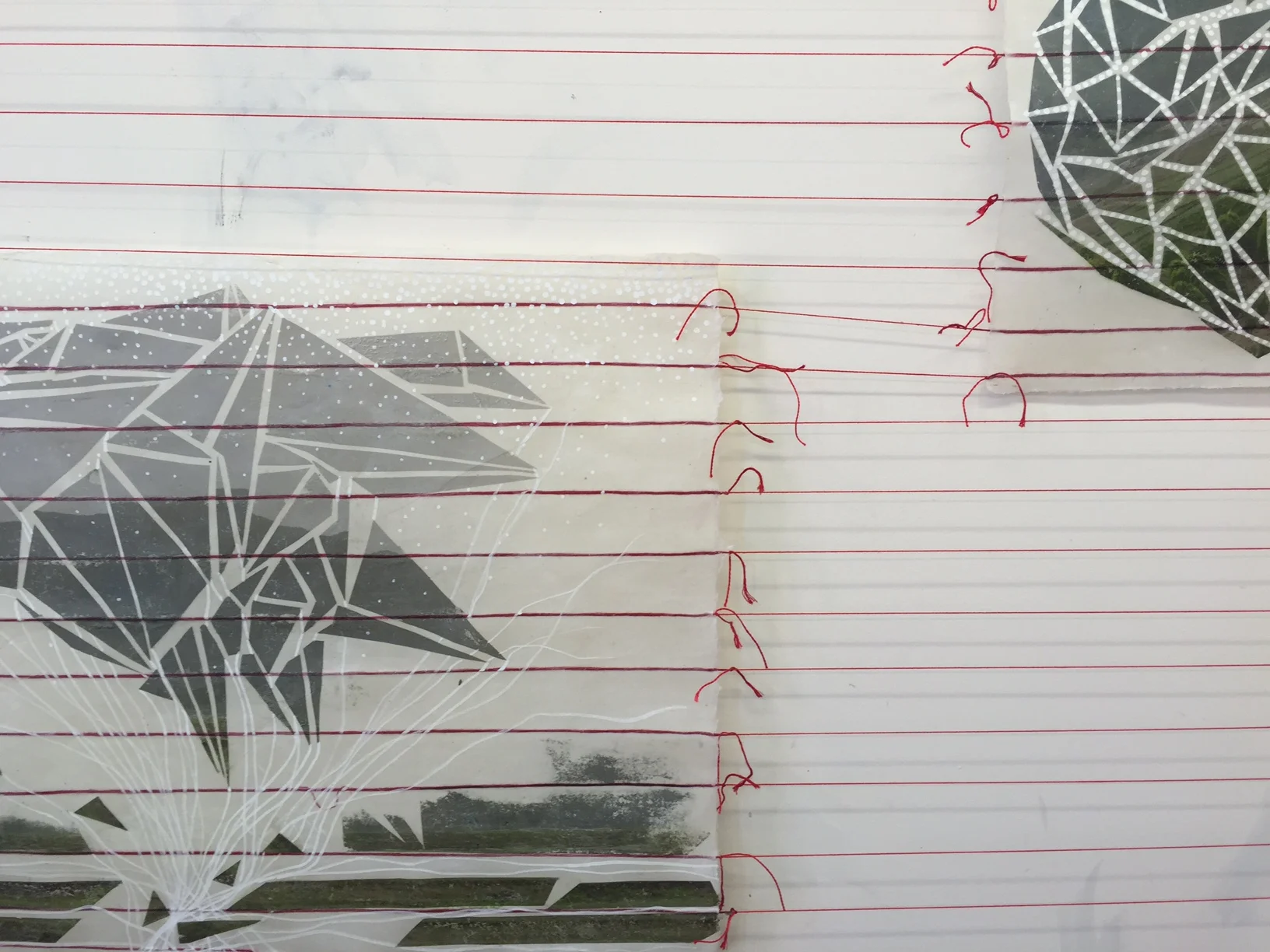Latitude (work in progress)
Latitude is defined as "the angular distance of a place north or south of the earth's equator, or of a celestial object north or south of the celestial equator, usually expressed in degrees and minutes."or "scope for freedom of action or thought"
In Latitude I continue my exploration in memory and place . The shapes are digital photographs, fragmented, rearranged and transferred onto paper that has red thread embedded in them. I continue these threads outside of the picture plane to create arrangements that allude to place and mapping. (Image at the end of this post) In this work the word latitude refers to both the geography as well as the latitude I take with the images I fragment.
I am always going back and forth between making and research and forming a dialogue between the two. One philosopher that I continue to be inspired by is Walter Benjamin. I came across this short passage by him that I absolute love. He has a way of finding words to describe so many abstract feelings and thoughts. Enjoy!
Walter Benjamin: Excavation and Memory
Language has unmistakably made plain that memory is not an instrument for exploring the past, but rather a medium. It is the medium of that which is experienced, just as the earth is the medium in which ancient cities lie buried. He who seeks to approach his own buried past must conduct himself like a man digging. Above all, he must not be afraid to return again and again to the same matter; to scatter it as one scatters earth, to turn it over as one turns over soil. For the ”matter itself” is no more than the strata which yield their long-sought secrets only to the most meticulous investigation. That is to say, they yield those images that, severed from all earlier associations, reside as treasures in the sober rooms of our later insights––like torsos in a collector’s gallery. It is undoubtedly useful to plan excavations methodically. Yet no less indispensable is the cautious probing of the spade in the dark loam. And the man who merely makes an inventory of his findings, while failing to establish the exact location of where in today’s ground the ancient treasures have been stored up, cheats himself of his richest prize. In this sense, for authentic memories, it is far less important that the investigator report on them than that he mark, quite precisely, the site where he gained possession of them. Epic and rhapsodic in the strictest sense, genuine memory must therefore yield an image of the person who remembers, in the same way a good archaeological report not only informs us about the strata from which its findings originate, but also gives an account of the strata which first had to be broken through.
Written ca. 1932; unpublished in Benjamin’s lifetime. Gesammelte Schriften, IV, 400–401. Translated by Rodney Livingstone, on the basis of a prior version by Edmund Jephcott. Fra Walter Benjamin: Selected Writings, Vol. 2, part 2 (1931–1934), ”Ibizan Sequence”, 1932, ed. by Marcus Paul Bullock, Michael William Jennings, Howard Eiland, and Gary Smith, Cambridge, Mass.: Belknap Press of Harvard University Press, 2005 (paper), p. 576

